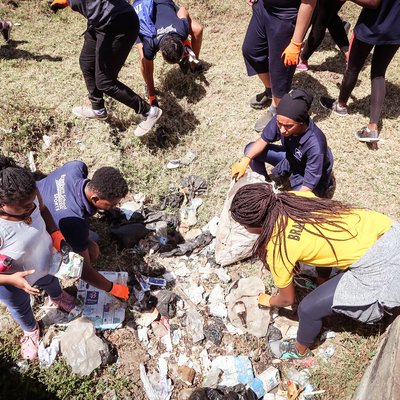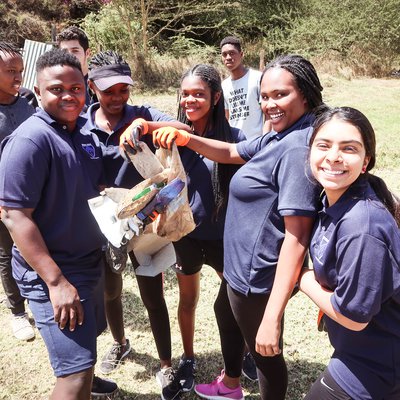World Clean Up Day 2018 - BISA plays it's part!
13th September 2018
BISA students put our school mission statement of being responsible citizens into practise in a very practical and visible way on Wednesday 12th September. As part of World Clean Up Day 2018, our students got to work in the area around our school campus in Kisongo. Armed with trash bags, gloves and the will to make our community a cleaner and safer place, they collected bags and bags of litter and rubbish, from the surrounding area. Many of the students expressed disbelief and shock at just how much litter could be found dumped in drains and at the side of the road. Knowing that our precious environment could be treated in such a way only spurred them on to work harder on setting a good example and cleaning up our little corner of Arusha.
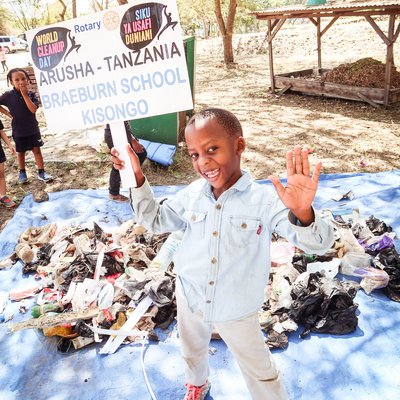
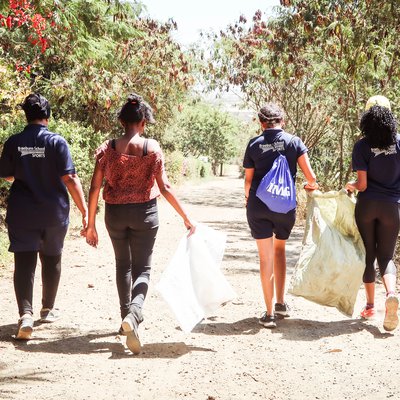
On 15th September 2018 millions of volunteers in 156 countries worldwide united to 'clean up the world' as part of one of the biggest civic actions in history, cleaning up litter and mismanaged waste from our beaches, rivers, forests, and streets. Aiming to tackle 'trash blindness', the World Clean Up Day movement recognises that, in order to truly create a world without waste, it will require a collective effort from all levels of society, from schools to high level officials.
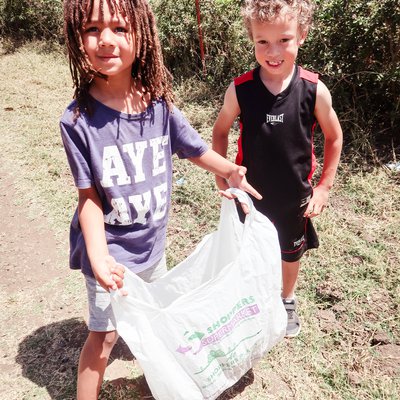
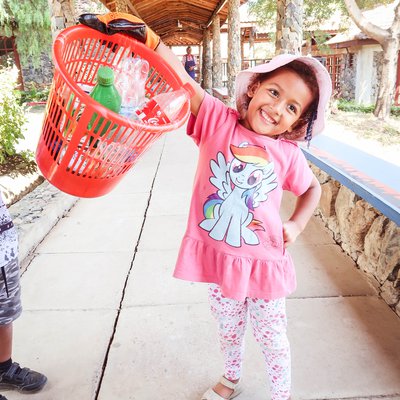
Trash blindness - a situation in which a society or its individual members are either:
|
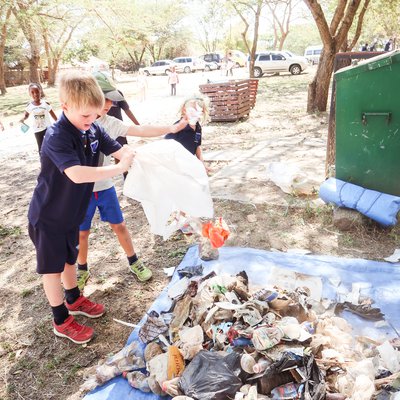
- Carry a reusable water bottle. Single use plastics like plastic water bottles are one of the biggest causes on waste on our planet.
- Take a reusable travel mug to the coffee shop, or make your coffee at home. Use a French press or coffee maker and avoid those single-serving packages.
- Take your own reusable containers to takeout restaurants. If you hand over the containers when you order and ask nicely, most restaurants will oblige you.
- Take your lunch to school or work in a reusable containter and avoid single-use packaging like plastic sandwich boxes.
- Stop using plastic bags and bring your own reusable bags to the store when you are doing any kind of shopping.
- When you eat out, say no to any single-use items like paper or plastic napkins, placemats, straws, cups and single-serving containers, if you can. Be sure to explain why!
- Don’t buy anything that comes in wasteful single-serving packages, like candy, gum, granola bars, popsicles, etc.
- Cancel your magazine and newspaper subscriptions and read them online or at the library.
- Use both sides of a piece of paper before recycling it or making it into upcycled crafts.
- Use old clothes for rags for cleaning around the house, instead of paper towels.
- Use cloth napkins and hand towels in your kitchen.
- Keep a worm bin or compost pile to compost all your food scraps, leftovers, floor sweepings, and more.
- Don’t buy anything disposable. Look for durable goods instead or borrow what you need. Paying a little more up front often means things will last much longer for you.
